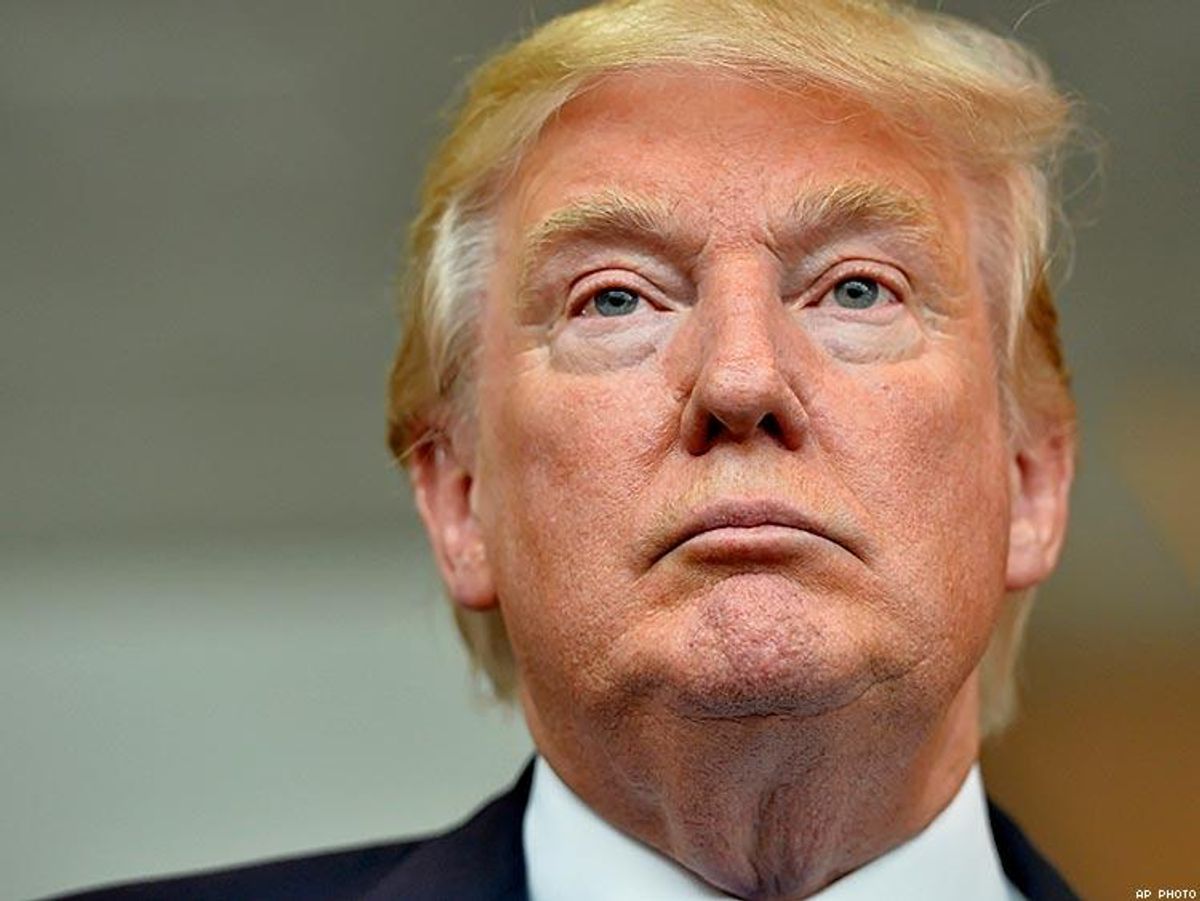Some of what Donald Trump told The Advocate in an interview 15 years ago will sound familiar to today's voters, like his claim that Americans need an outsider in Washington.
But the Trump of 2000 attacked Pat Buchanan for vilifying Mexicans and backed amending the 1964 Civil Rights Act to protect gays and lesbians -- which are just two examples of a difference in tone.
"Washington is in gridlock, and nothing is getting done," he groused, while threatening to run under the Reform Party banner against Buchanan. "The special interests run the country. I think it will take a nonpolitician to break the logjam."
And Trump made the usual boasts about his negotiating skills, saying, "I would appoint myself U.S. trade representative and conduct the negotiations with our major trading partners myself."
That much is the same, but Trump's presidential to-do list 15 years ago included things like universal health care -- which even President Obama hasn't attained.
Trump also struck an inclusive tone when talking about gays and lesbians. He criticized then-candidate George W. Bush for failing to pass hate-crimes legislation in Texas after Matthew Shepard's murder, and he called for an end to the "don't ask, don't tell" policy. Both of those changes have since happened (LGBT-inclusive hate-crimes law at the federal level, not in Texas).
"I like the idea of amending the 1964 Civil Rights Act to include a ban of discrimination based on sexual orientation," Trump told The Advocate in the February 15, 2000, issue. "It would be simple. It would be straightforward."
Trump's prior support for amending the Civil Rights Act to include sexual orientation as a protected characteristic is especially relevant now, because that's exactly what LGBT activists are pushing for in the current Congress. The Equality Act, as it's been dubbed by sponsors, is a comprehensive nondiscrimination bill at the federal level that would protect LGBT people in employment, housing, public accommodations, education, credit, and more.
Although the notion of amending the Civil Rights Act has been around since the 1970s, Trump actually complained during the 2000 interview that he wasn't getting proper credit for having come up with the idea before other candidates competing at the time. Trump said "amending the Civil Rights Act would grant the same protection to gay people that we give to other Americans -- it's only fair. I actually suggested this first, and now I see [Democratic presidential candidate] Bill Bradley has jumped on the bandwagon and is claiming the idea as his own."
While the Equality Act would include revisions to a number of applicable portions of federal law, among its main updates would include those made to Title VII of the 1964 Civil Rights Act, which offers protections against discrimination in employment. Already protected under Title VII are religious beliefs, race, sex, color, and national origin. The Equality Act mirrors the Civil Rights Act's scope, in that protection would extend to anyone working at any public or private business with more than 15 employees. And the bill does not change existing exemptions for religious corporations, schools, and associations that want to hire based on religious beliefs when employees must perform work connected with religious activities.
(RELATED: Human Rights Campaign President Chad Griffin on Why The Equality Act Is Needed)
When asked whether he'd hire a gay person in a Trump administration, the businessman seemed supportive of the principle, at least, that undergirds failed legislation like the Employment Non-Discrimination Act -- which passed the Senate in November 2013 but was prevented from a vote in the Republican-controlled House before the end of last year's session.
"I would want the best and brightest. Sexual orientation would be meaningless," Trump told The Advocate 15 years ago. "I'm looking for brains and experience. If the best person for the job happens to be gay, I would certainly appoint them."
He essentially gave the same answer when asked recently, after Republican rival candidate Ben Carson said a Muslim shouldn't be elected president, whether he'd appoint a Muslim to his administration.
Trump was also consistent with his current position when asked about same-sex marriage, which he opposed then and still does to this day. While he hasn't evolved on marriage equality, he has on universal health care -- which he listed as among the top three priorities in a hypothetical 2000 Trump administration.
"I would press for universal health care. It's ridiculous that the richest country on Earth can't provide first-rate health care for our people," he said. "I would put forward a comprehensive health care program and fund it with an increase in corporate taxes."
Trump talked repeatedly about the need to be inclusive and attacked Buchanan for ostracizing certain Americans with his speech during the 1992 Republican convention, which Trump labeled "a disaster." In that speech, Buchanan famously declared a "cultural war" was happening in the United States, with the left supporting things Buchanan found immoral, such as abortion rights or equality for gays and lesbians.
"I used to like Pat," Trump said. "I was on Crossfire with him. I thought he was a nice guy. Then I read the things he had written about Hitler, Jews, blacks, gays, and Mexicans. I mean, I think it's disgusting."
Read the complete interview with Donald Trump from the February 15, 2000, issue of The Advocate.


















































































